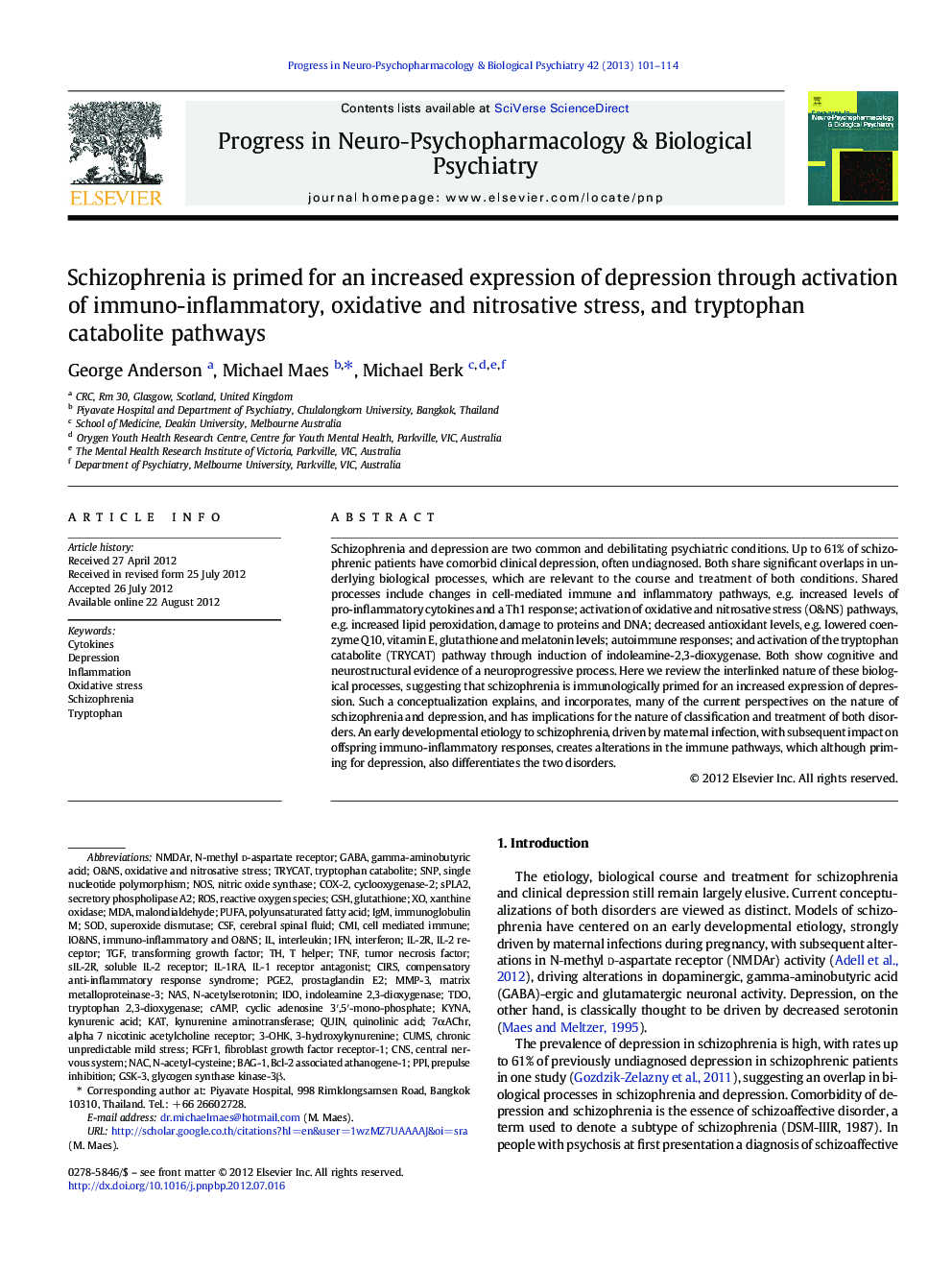| Article ID | Journal | Published Year | Pages | File Type |
|---|---|---|---|---|
| 2564927 | Progress in Neuro-Psychopharmacology and Biological Psychiatry | 2013 | 14 Pages |
Schizophrenia and depression are two common and debilitating psychiatric conditions. Up to 61% of schizophrenic patients have comorbid clinical depression, often undiagnosed. Both share significant overlaps in underlying biological processes, which are relevant to the course and treatment of both conditions. Shared processes include changes in cell‐mediated immune and inflammatory pathways, e.g. increased levels of pro-inflammatory cytokines and a Th1 response; activation of oxidative and nitrosative stress (O&NS) pathways, e.g. increased lipid peroxidation, damage to proteins and DNA; decreased antioxidant levels, e.g. lowered coenzyme Q10, vitamin E, glutathione and melatonin levels; autoimmune responses; and activation of the tryptophan catabolite (TRYCAT) pathway through induction of indoleamine-2,3-dioxygenase. Both show cognitive and neurostructural evidence of a neuroprogressive process. Here we review the interlinked nature of these biological processes, suggesting that schizophrenia is immunologically primed for an increased expression of depression. Such a conceptualization explains, and incorporates, many of the current perspectives on the nature of schizophrenia and depression, and has implications for the nature of classification and treatment of both disorders. An early developmental etiology to schizophrenia, driven by maternal infection, with subsequent impact on offspring immuno-inflammatory responses, creates alterations in the immune pathways, which although priming for depression, also differentiates the two disorders.
► The etiology of schizophrenia primes comorbid depression. ► Immuno-inflammatory, oxidative and tryptophan catabolite pathways drive comorbidity. ► Redefining schizophrenia and depression has treatment and classification implications.
